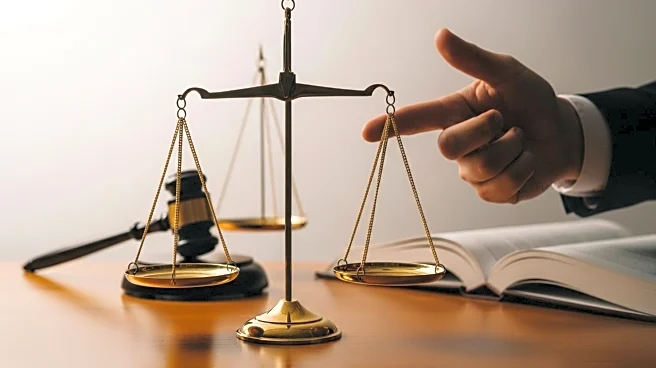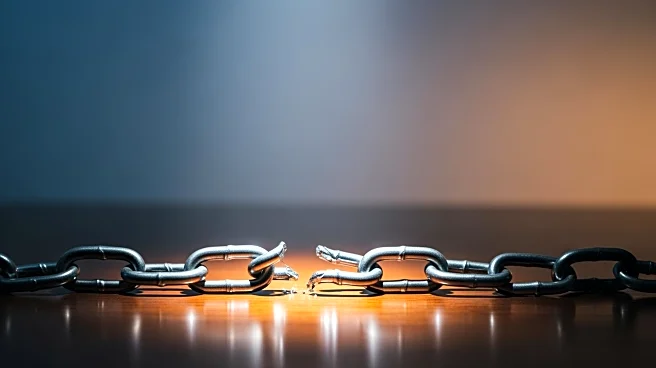What's Happening?
Recent tensions between federal trial judges and the US Supreme Court have highlighted a growing divide within the judiciary. This strife is exacerbated by the unprecedented number of cases challenging executive orders and policies from President Trump's administration. Over 170 major cases have been filed against the administration since 2025, leading to increased strain on lower courts. The Department of Justice has filed numerous emergency relief applications with the Supreme Court, more than during previous administrations. Federal judges have expressed frustration with the Supreme Court's handling of these applications, citing a lack of explanation for decisions that overturn lower court rulings. This situation has led to accusations of partisanship within the judiciary, undermining public confidence in judicial impartiality.
Why It's Important?
The internal conflict within the judiciary has significant implications for the perception of judicial independence and impartiality in the United States. As judges face increasing attacks from political figures, the integrity of the judicial system is at risk. This situation could lead to a loss of public trust in the courts, affecting the rule of law and the ability of the judiciary to function effectively. The strain on lower courts may also impact their ability to handle cases efficiently, potentially delaying justice for individuals and businesses. The judiciary's ability to maintain its independence is crucial for upholding democratic principles and ensuring fair legal processes.
What's Next?
The judiciary may need to find ways to address the internal tensions and external criticisms it faces. This could involve increased dialogue between the Supreme Court and lower courts to ensure transparency and understanding of decisions. Additionally, retired judges, bar associations, and legal organizations may continue to advocate for judicial independence and defend judges against unfair attacks. The judiciary's response to these challenges will be critical in maintaining its credibility and authority.
Beyond the Headlines
The ethical obligations of lawyers to defend the judicial system highlight the importance of legal professionals in supporting judicial independence. The involvement of organizations like The Article III Coalition and the Society for the Rule of Law underscores the broader societal role in protecting the judiciary from political interference. This situation also raises questions about the balance between judicial accountability and independence, as well as the impact of political polarization on legal institutions.









